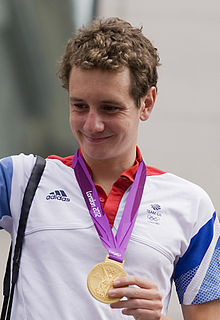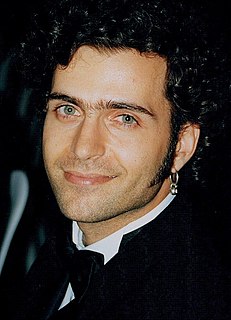A Quote by Neil Harbisson
Kids are really inspired to not just apply senses to robots and machines, but to try them on themselves.
Related Quotes
Schools are really, really important. It gives you access to every kid in the country. It gives you a massive pool of people to see who might be talented at different sports. It allows kids to try sports. Kids can be inspired all they want, but if they can't go out and try a sport, then it's no good.
I have been motivated by this idea since I was a kid that if we invented machines that were created in the way that people are - were aware, have free will, inventive machines, machines that would be geniuses - potentially, they could reinvent themselves. They're not just applying it to other things - they could actually redesign themselves.
My husband and I have just really been on this journey to live cleaner and eat healthier and allow our children to see us doing that so that's the kind of lifestyle they'll want for themselves. Just a healthier, aware, conscious life. Now we buy organic, we go to the farmers markets. We really try to involve the kids in cutting up the vegetables, cleaning them, preparing the meals, just making it fun.
Late twentieth-century machines have made thoroughly ambiguous the difference between natural and artificial, mind and body, self-developing and externally designed, and many other distinctions that used to apply to organisms and machines. Our machines are disturbingly lively, and we ourselves frighteningly inert.
Surely, if we take on thinking partners - or, at the least, thinking servants - in the form of machines, we will be more comfortable with them, and will relate to them more easily, if they are shaped like humans. It will be easier to be friends with human-shaped robots than with specialized machines of unrecognizable shape. And I sometimes think that, in the desperate straits of humanity today, we would be grateful to have nonhuman friends, even if they are only the friends we build ourselves.





































